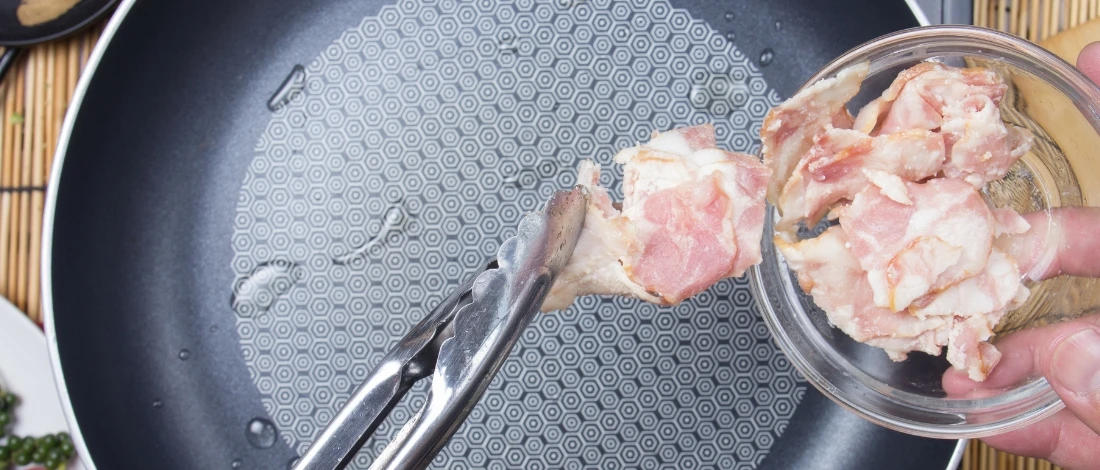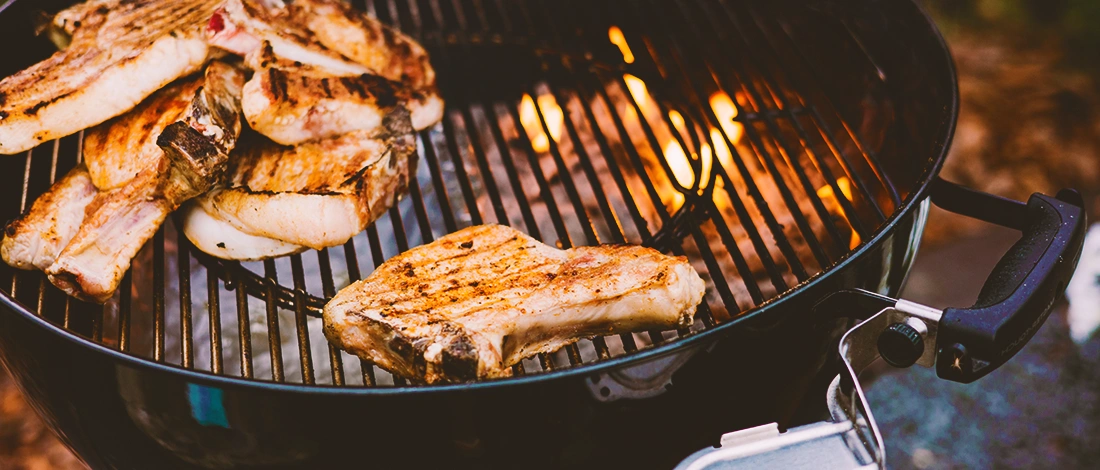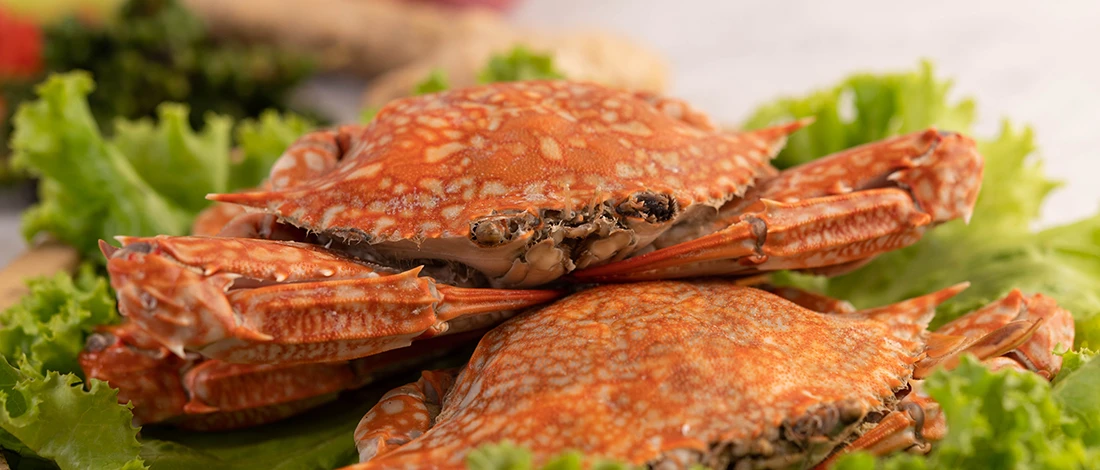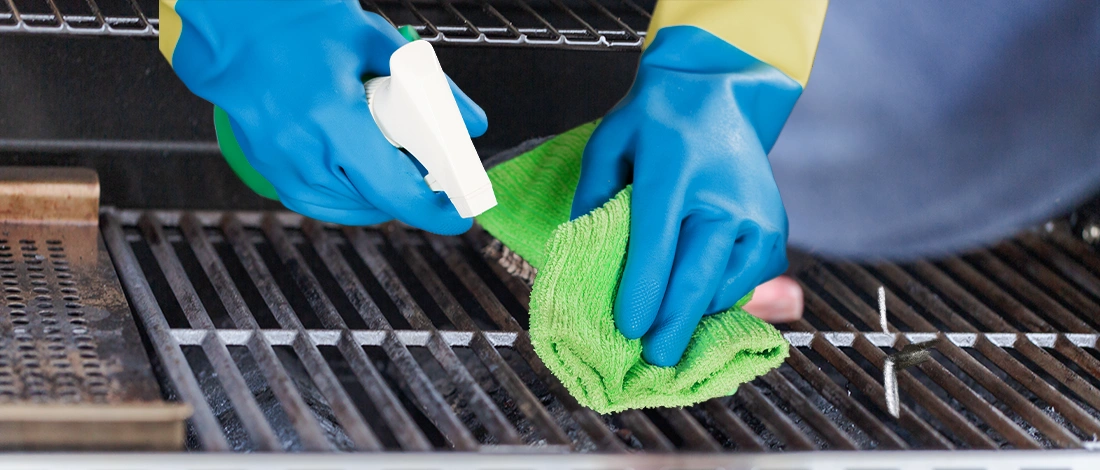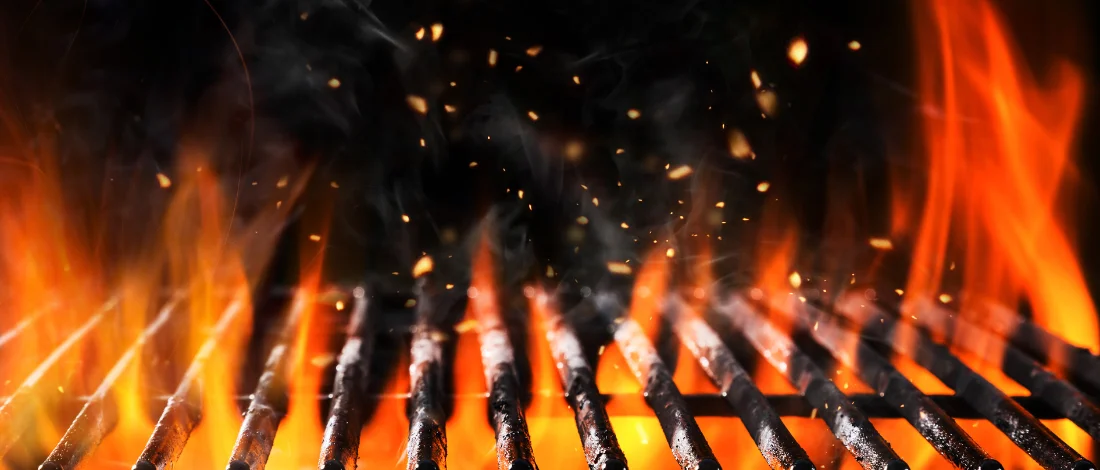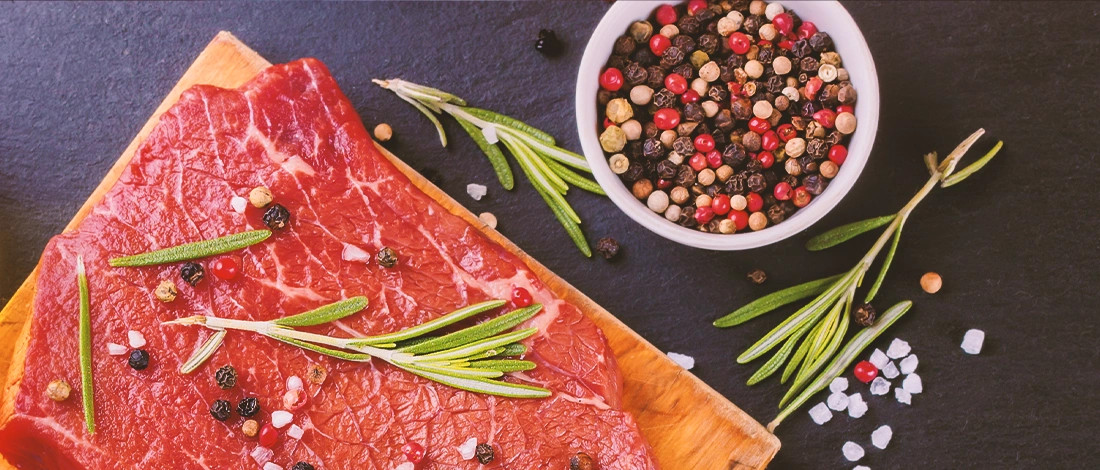Using a BBQ grill is all fun and games until the food starts sticking to the grill. Grilling chicken is among one of the main culprits; if you don’t have enough oil or heat, the chicken sticks and tears, resulting in dry meat that is both unpleasant to eat and look at.
To ensure your food never sticks to the grill again, we have gone ahead and tested several hacks, rounding up the best methods in six simple steps.
Quick Summary
- To prevent chicken from sticking to the grill, ensure the grill is clean, preheated, and the grates are oiled with high smoke-point oil.
- Chicken should be at room temperature, dried, oiled, and placed skin-side down on the grill.
- Avoid flipping the chicken too early; if it sticks, wait a minute before trying again.
Why Does Chicken Stick to Grill Grates?
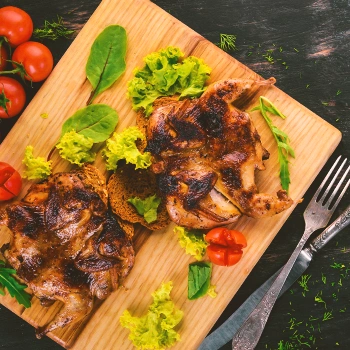
Chicken sticks to grill grates for many reasons, but in most cases, the inadequate temperature of your grill will be the main culprit.
If there isn’t enough heat radiating from your unit, whether that be an electric, charcoal, or gas grill, you’ll have a hard time flipping the meat.
The scientific reasons behind food sticking are due to the proteins in the meat creating a chemical bond with the grill grate.
This bond acts like a magnet; Therefore, we need to find a few ways to stop this bond from happening.
How to Prevent Chicken from Sticking to the Grill?
To prevent chicken from sticking to the grill, the meat needs to be dried and seasoned before adding the cooking oil. This can be olive oil or canola oil.
You’ll have a hard time grilling a whole bird due to the size and shape; therefore, it is better to cut your chicken up into smaller pieces, such as chicken breasts and chicken thighs.
Cooking less meat at a time will ensure all parts get enough heat, reaching your target temperatures more effectively.
Before grilling your food, ensure the chicken is at room temperature. A cold chicken on hot grates will only cause the chicken skin to quickly stick to the grates, peeling it off when you attempt to flip it to the other side.
“I love using gas grills because they are easier to heat, and it's much easier to control the flames with a gas grill than with a charcoal fire. Grilling is not just about lighting a fire.”
- Bobby Flay, Chef
Regardless of the cut, to keep chicken from sticking to the grill, you should always place it skin-side down. The boney side of the chicken is more likely to stick to the grates as opposed to the smooth side.
Just like when you cook all BBQ foods, avoid flipping the chicken too early. If it sticks to the grill once you’re ready to flip, leave it for a minute before attempting again.
6 Steps to Prevent It

When cooking food such as fish, steak, or chicken, you can do a few things to prevent sticking.
1. Clean the Grill
Cooking food on a dirty grill not only makes for an unpleasant result, but it’s also the best way to ensure food sticks to the grill surface.
If your cooking surfaces aren’t clean, oil and carbon residue will create a sticky substance that is difficult to remove.
To clean your BBQ grill, simply use a scrub pad, brush, and warm water to remove the food and oil residue. Wait until your hot grill has cooled down slightly, but not to the point where it is cold.
If your grill is cold, you will need to use a scrub pad or hard brush as the sauce, marinade, oils, and food particles will harden and become a pain to clean.
2. Use Oil With a High Smoking-Point
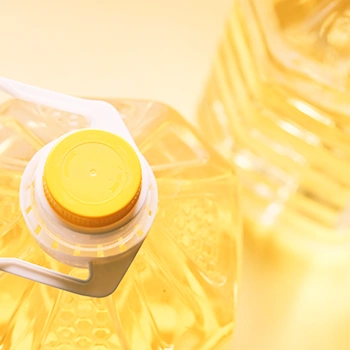
You need to oil your grates before cooking, which is also known as seasoning your grill.
You should use an oil with a high smoking point, which will last much longer on your grill. This will also keep the chicken from sticking to the surface.
When seasoning your grill, use an oil with a smoking point above 400ºF. Refined Canola oil, palm oils, and most sunflower corn oils have a high smoking point above 400ºF [1].
If you’re using the cooking oil on hot grates, take two sheets of paper towel and scrunch them into a ball. You will then want to dip them in the oil using long tongs.
Once you have done that, rub the paper towels onto the grates, ensuring the entire surface is covered with olive oil.
3. Oil the Meat
Before you grill, dry the meat using a paper towel. You can then use your favorite oil, whether that be sunflower oil, palm oil, etc., on the meat.
Once the meat has been oiled, you can place it on your warm grill, allowing the oil to fill the other areas of the grill.
4. Cooking Spray
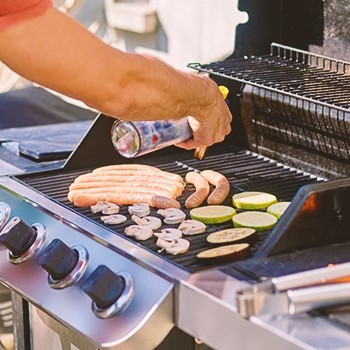
You may have heard people saying that cooking spray is better than using regular oil. Truthfully, most cooking sprays are simply a marketing gimmick, and they are using the same high-smoking oils we recommended using above.
Cooking sprays can also contain highly flammable butane or propane which can easily cause accidents or cooking burns if not used correctly.
You should always use the cooking spray before starting the fire. If you attempt to spray it while there are flames, the fire will flare up [2].
5. Preheating the Grill
To stop chicken sticking to the grill, always preheat your grill. You’ll know your grates are ready when the meat produces a sizzle as it touches the metal.
This sizzle shows there is enough moisture to prevent the skin from getting stuck to the grill, and the steam it creates will eventually evaporate and create great sear marks.
6. Precooking the Food
When cooking food on the BBQ, you may have noticed that it rarely sticks to the metal when you flip the meat.
This is because the temperature inside the meat has made it so the proteins can not bond with the metal grate.
The thinner the grates, the more likely it is for foods such as fish and chicken to get stuck. That’s why it’s a good idea to lightly cook the meat in a pan before placing it on the heated grill.
For food such as steak, burgers, lamb, etc., they are usually more forgiving cooked directly on the grates. Fish and chicken are most likely to stick and break when being cooked.
However, this method does take more work and does take out the fun of grilling.
So, you shouldn't have an issue as long as you remember to apply oil on your grates, use oils with high smoking points, preheat your grill, and use clean grates.
FAQs
How Do You Get Grill Marks on Chicken Breast?
To get grill marks on chicken breast, you will want to heat the grill for around 20 minutes. Place the oiled chicken over direct heat, with the grill grates running at an angle on the chicken. This will create a good sear and prevent sticking.
What Can I Rub on My Grill to Keep It From Sticking?
You can rub a thin layer of cooking oil on the grill grates to prevent it from sticking. This should be an oil with a high-temperature point, such as palm oils. The light coating should prevent the hot meat from sticking to the grill. You can also gently slide your meat over the grill before you put it down; this allows the outside of the meat to heat up.
Can You Use Aluminum Foil on a Grill?
Yes, you can use aluminum foil on a grill. You can place the foil on a preheated grill with the non-stick side holding the food. Remember that the foil will get hot, so do not touch it with bare hands.
References:
- https://www.theglobeandmail.com/life/health-and-fitness/health/smoke-point-matters-in-cooking-with-oil/article26569060/
- https://www.abcactionnews.com/news/working-for-you/warning-dangers-of-flammable-cooking-sprays


